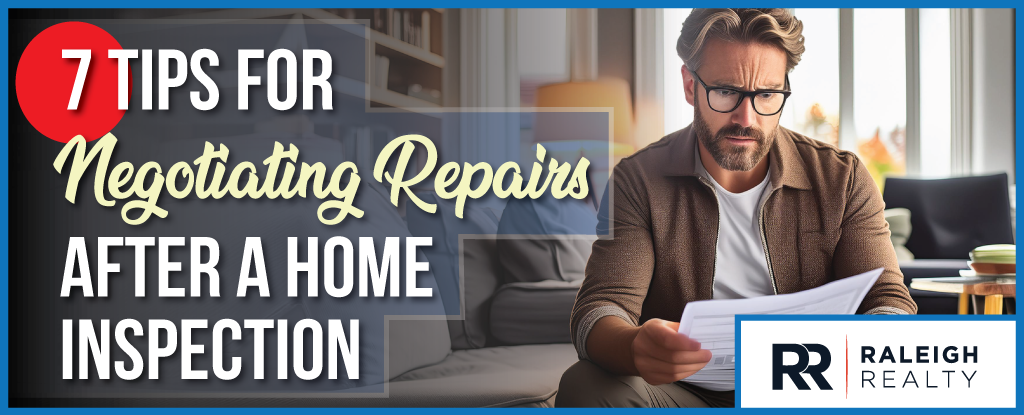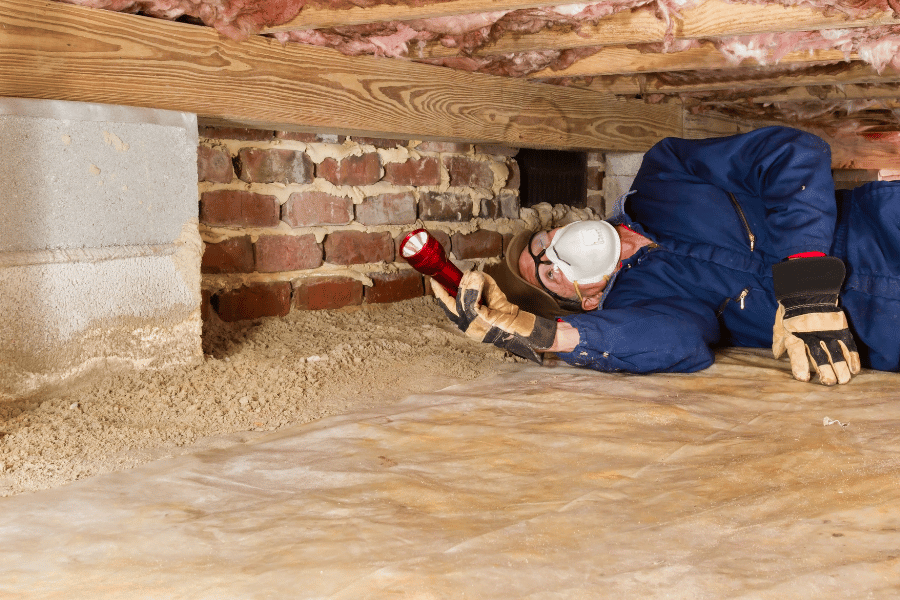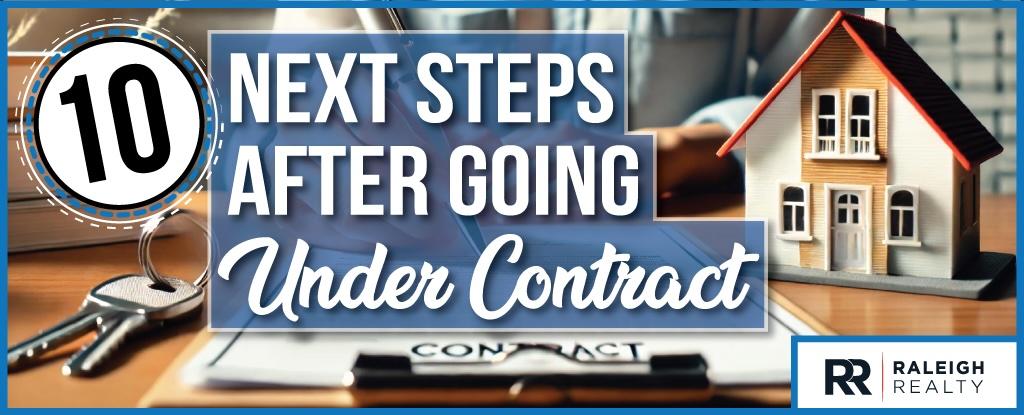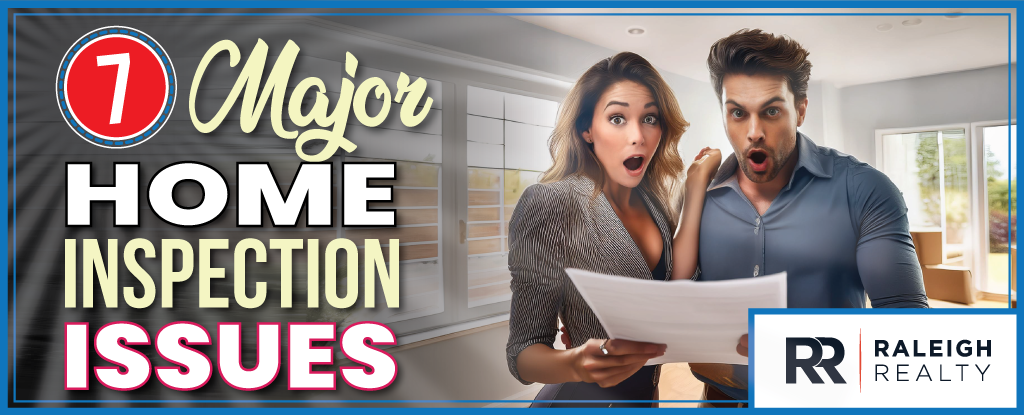Negotiating Repairs After a Home Inspection
What fixes are mandatory after a home inspection? Is the seller not willing to negotiate repairs? Here are top strategies to help with your requests for negotiating repairs after a home inspection!
Negotiating repairs after a home inspection doesn't have to be difficult. When an offer is accepted on a home, it can be easy for both buyers and sellers to feel that they're at the end of the finish line.
Accepting an offer brings the deal much closer to the closing table, but several other essential steps must be completed before closing day.
One of those steps is the home inspection, and with the home inspection, significant issues can arise, mainly if the home is being sold in bad condition.
A home inspection provides the buyer with a detailed report of the home’s structure, plumbing, electrical, foundation, roof, etc. It helps the buyer know if certain repairs are needed so they do not encounter costly problems after purchasing the home.
Working through repairs on the home inspection shouldn't be a battle. There should be a mutual understanding from both sides as to why a buyer is requesting certain repairs and why the seller may decline those repairs.
In Raleigh, the seller is not required to make any home repairs on a home, so you may have a tougher time negotiating after the home inspection. However, most sellers offer to help, whether in the form of actual repairs or financial compensation.
The Triangle housing market continues to be competitive, but that doesn't mean buyers should skip essential steps like home inspections or forgo negotiating necessary repairs.
In fact, understanding how to navigate repair negotiations can save you thousands while ensuring your new home is safe and sound.
Here are seven top tips to help you negotiate repairs after your home inspection
1. Determine What You'd Like the Seller to Repair
While every situation is different, the buyer or seller may split some or all of the repairs appearing on the inspection report. Other times, the buyer will be solely responsible, or the seller will be responsible.
When reviewing the inspection report, determine which items you prefer the seller to repair. As a buyer, always try to come to the seller from a kind, courteous place.
Hefty negotiations will most likely take place, which your realtor will handle for you. Your realtor should also help determine which repairs the seller should handle and which will be your responsibility.
2. Discuss What Repairs Are Most Important
Remember that nearly all homes will have issues and that no house is perfect. When reviewing your inspection report, categorize issues using the "Four S's" approach:
- Safety Issues: Electrical hazards, structural concerns, mold, radon above EPA levels
- Structural Problems: Foundation issues, water intrusion, roof defects
- Systems Failures: HVAC, plumbing, or electrical systems nearing end of life
- Superficial Concerns: Cosmetic issues, minor wear and tear
Focus on the major defects instead of the issues that aren't as important. When buyers become focused on the smaller, less pressing items on the list, they may lose sight of significant issues that will be the most expensive to fix.
Sellers are most likely to address safety concerns, somewhat likely to address structural and systems issues, and rarely willing to fix superficial problems.
.png)
3. Get a Quote for Repairs from a General Contractor
After receiving the inspection report, the buyer may feel inclined to ask the inspector for pricing estimates on how much the repairs will cost. In almost every situation, the inspector will be unable to provide an estimate.
A contractor, on the other hand, can give some ballpark numbers. Your realtor may also be able to provide some estimates. Additionally, your realtor may be able to put you in contact with recommended contractors.
Chances are if your Realtor has been in the real estate industry long enough, and has a general understanding of standard repair costs. The cost of repairs will depend on type of work needed, labor costs, materials costs, and contractor fees.
After your realtor has put you in contact with a contractor, provide a list of the items you want them to complete and they should have an estimate on approximately how much everything will cost.
4. Would you Prefer Money or Repairs?
If you are selling your home, it is advised that you offer repair money (typically referred to as a ‘credit’) to the buyer instead of handling the repairs yourself. A credit brings down the buyer’s closing costs to help offset repair costs. In doing so, the buyer can then handle the repairs on their own without getting the seller involved.
Requesting a credit at closing offers several advantages:
- You control the quality of work and contractor selection
- Repairs can be completed on your timeline
- You avoid the risk of sellers choosing the cheapest contractor
- The transaction can move forward without delays for repair completion
As a seller, you won’t run the risk of the buyer continually checking in to ensure the repairs were completed. They may also demand that additional work be completed if they are unhappy with the initial repairs.
Serving as the middleman between a contractor and a buyer also puts more items on your to-do list when you’re in the process of moving. It is always best to let the buyer find the contractor and oversee the work on their own.
Providing the buyer with monetary credit typically provides the funds necessary for the buyer to pay for repairs.If you are a buyer, it is advised to take a monetary credit rather than let the seller oversee the work.
Your expectations are most likely very different than the seller’s, so it is best to negotiate a credit so that you have extra funds to put towards the work. That way, you can oversee everything from start to finish and will not have to discuss repairs through a middleman (the seller).
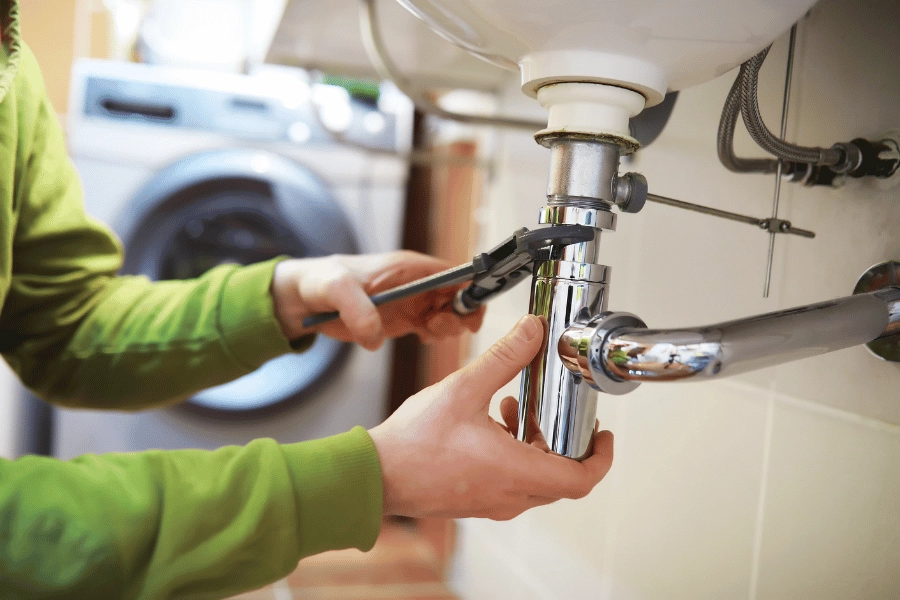
5. Understand the Seller is Not Obligated to Make Repairs
Buying a home brings out many emotions. There is the initial excitement of finding a home, and then some stress and tension may arise if the seller refuses to pay for repairs.
Take a moment to take a step back and assess how much you want this home. Is this the house of your dreams? Are the repair costs outrageous or manageable?
If the repair costs are manageable, you may kick yourself later if you choose to walk away simply because the seller wasn’t willing to throw in a little extra cash.
6. Approach the Request for Repairs with Gratitude vs. an Attack
The worst way to communicate with a seller is by demanding that they pay for repair costs. The repairs are typically just as much of a surprise to the seller as they are to the buyer.
This is especially true considering most repairs that appear in an inspection report are hidden beneath the surface of the home, tucked away out of sight. The sellers may have been living in a home with a faulty foundation for years and had no idea until they viewed the inspection report.
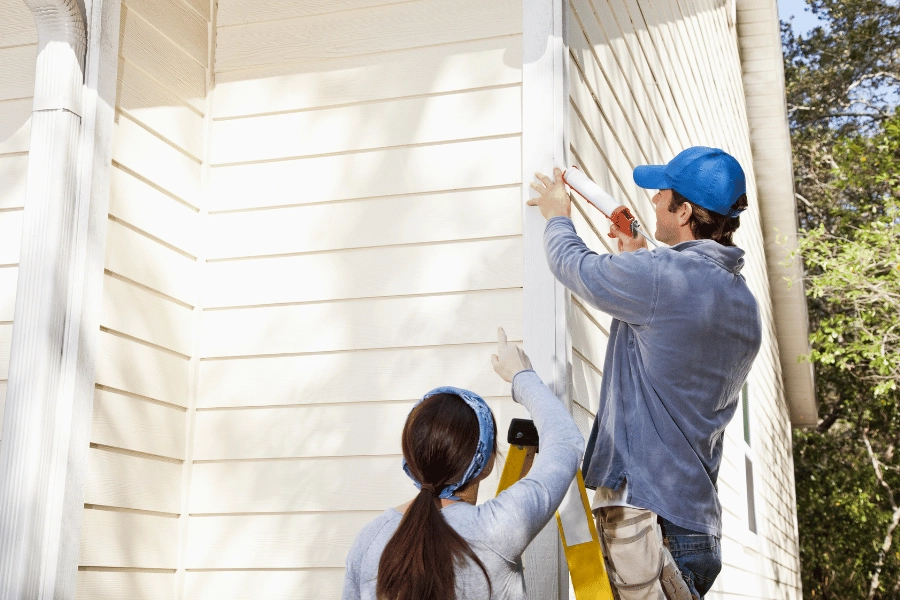
7. Try to Understand the Seller’s Point of View
Although it is easy to feel anger or resentment toward the seller, understand where they are coming from as well. Sellers have tons of costs and fees that they must consider, and repair costs are unfortunately not always their top priority.
They may want to help the buyer with repair costs to expedite the deal, but may be strapped for funds and simply cannot afford to put money into repairs.
One effective negotiation technique is what we call the "Repair Threshold" approach. Rather than nitpicking every item, establish a reasonable dollar threshold (often $500-$1,000) and only request repairs or credits for items exceeding this amount.
This signals to sellers that you're reasonable and focused on significant issues rather than trying to extract every possible dollar, which often results in better overall outcomes.
Methodology
When determining how to best negotiate repairs during a home inspection data was sourced in April 2025 from the North Carolina Real Estate Commission.
FAQs
Who pays for the home inspection?
In North Carolina, home inspections are typically paid for by the buyer. This applies to many other states across the country as well and will depend on the size of the home and the specific services requested.
The home inspection can range anywhere from $350 to over $1,000. Smaller homes generally cost between $350 to $400 and larger homes can range from $600 to $1,000 based on the square footage, age of the home, and location.
How long does a home inspection take?
A home inspection usually takes about two to four hours, on average. It is strongly advised to have children and pets out of the house so that there aren’t any distractions during the home inspection process.
When possible, buyers and their Realtors should be present during the home inspection and ask questions during the process.
What fixes are mandatory after a home inspection?
Assuming a standard purchase agreement is in effect, the seller is usually not legally obligated to fix any of the defects that come back in the home inspection report.
However, there is typically a contingency in the purchase agreement that states the buyer can walk away from the deal if issues are found in the inspection.
So, although a seller is typically not legally required to cover the cost of problems, sellers who refuse to pay for anything run the risk of losing a buyer.
Beyond that, if there are major structural issues with the home or safety problems, mortgage lenders may require that those defects are resolved before agreeing to lend the buyer a loan.
So, even if the buyer is prepared to buy your home with the defects, they may not be able to obtain financing.
.png)
Does the seller pay for repairs after the inspection?
The seller is not legally obligated to pay for repairs. However, if they do not want to risk losing the buyer, it is in their best interest to at least consider paying for some repairs, if not all.
This is typically contingent on the real estate market, as well. If the seller is selling their house in a hot buyer’s market where there are a lot of buyers and low housing inventory, the seller may be at an advantage.
On the flip side, if there are tons of houses for sale and very few buyers looking for homes, it may be advantageous to pay for all or some of the repairs so that the seller doesn’t risk losing the buyer altogether.
How do you negotiate the house price after a home inspection?
When negotiating the home price, always think big picture. Do you anticipate renovating any aspects of the home in the future? Will the defects that appeared in the inspection report be obsolete after the renovations?
It is also important to weigh the gravity of the repairs. If the repairs are fairly minimal, such as replacing some cracked bathroom tiles, the buyer can request that the seller make the repairs themselves.
If the repairs are significant, will a monetary credit toward closing costs suffice, or is a reduced price necessary? Unless the sellers are desperate and the changes are substantial, it may be far more difficult to get the seller to agree to a price reduction vs. credits.
How to request repairs after a home inspection?
Understandably, a seller wants to spend as little money as they can on repairs and sell their home in the shortest timeframe possible (which makes sense). Knowing that, if the inspection report reveals significant issues, the buyer is typically better off asking for a credit instead of asking the seller to take care of the repairs themselves.
A credit would help bring down closing costs for the buyer at closing, alleviating the cost of making major repairs to the home.
It is advised that buyers take credits rather than let the seller take care of the repairs. Because the seller is understandably in the midst of moving and wants to expedite the process as much as possible, they may not do careful due diligence in selecting a contractor to perform the work.
Or, if they choose the contractor the buyer requests, they may not oversee the work and will be unaware of the contractor failing to repair certain defects.
The buyer will have to live in the home, not the seller, so the seller may be less invested in ensuring the work is completed properly. If the buyer has additional funds to spend on repairs, they can hire the contractor they want to work with and oversee the work.
What are the common repairs typically needed after a home inspection?
Electrical: Frayed wiring, wiring that’s not up to code, or improperly wired electrical panels are some of the most common electrical issues found during a home inspection.
Plumbing: Water damage, leaking pipes, sewer system problems, and failing water heaters are some of the common plumbing issues found on home inspection reports.
Foundation: For the few homes with basements in North Carolina, basement water damage is common. Cracked foundations are also common in home inspections.
Mold: Given North Carolina’s humid weather, mold tends to be a common problem
Roofing: When it comes to the roof, problems can range from missing shingles to major leaks, which may require a full roof replacement.
Termites and pests: While some pests are impossible to keep at bay, termites and vermin are a major red flag for buyers, even in the cleanest houses.
Windows and doors: Doors that don’t open and close properly or windows with broken panes and failing window seals are common.
Asbestos: Asbestos or lead paint can be extremely hazardous and should be taken seriously if found in an inspection report. This is most commonly found in older homes.
Chimneys: Older defective chimneys may need to be removed if they present a significant safety hazard.
.png)
Who pays for repairs after the home inspection?
Repairs can be paid by the buyer, seller, or both—every transaction is unique. Depending on the circumstances, the buyer may ask that the seller take care of significant safety hazards and other costly fixes. If the seller refuses, the buyer may leave the deal altogether.
Negotaiting Home Repairs After an Inspection - Final Thoughts
Remember that your goal is a successful purchase of a home you'll enjoy for years to come. Sometimes winning the negotiation battle means compromising on smaller items to secure agreement on the issues that truly matter.
If you are relocating to Raleigh, contact the experts at Raleigh Realty. Our experienced agents have navigated hundreds of inspection negotiations across the Triangle area.
We understand the local market dynamics and can help you strike the right balance between advocating for necessary repairs and maintaining a positive relationship with sellers.
